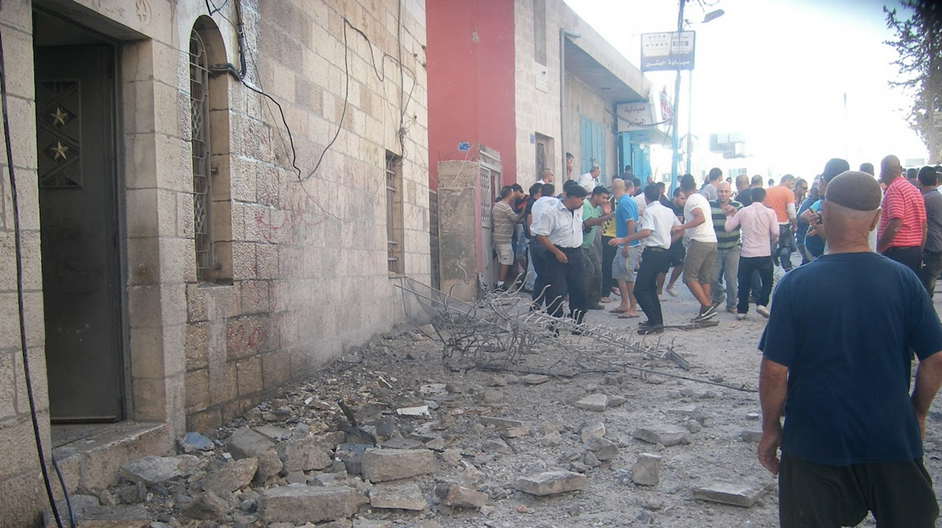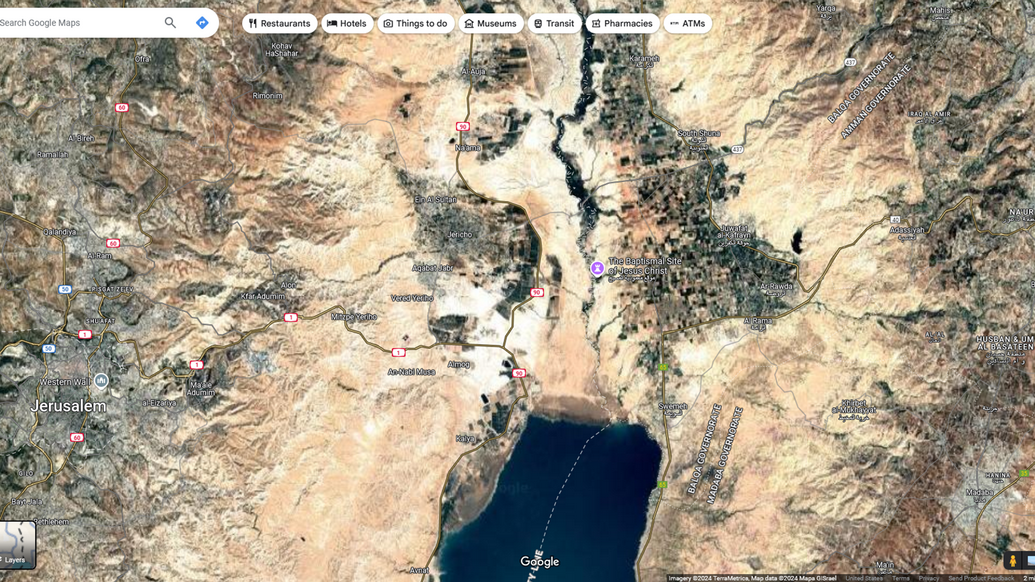Sweet Salt
OT Lesson: 2 Kings 2:19-22 (NLT)
One day the leaders of the town of Jericho visited Elisha. “We have a problem, my lord,” they told him. “This town is located in pleasant surroundings, as you can see. But the water is bad, and the land is unproductive.”
Elisha said, “Bring me a new bowl with salt in it.” So they brought it to him. Then he went out to the spring that supplied the town with water and threw the salt into it. And he said, “This is what the Lord says: I have purified this water. It will no longer cause death or infertility.” And the water has remained pure ever since, just as Elisha said.
NT Lesson: Matthew 5:13 (NRSV)
You are the salt of the earth; but if salt has lost its taste, how can its saltiness be restored? It is no longer good for anything, but is thrown out and trampled under foot.
Sermon
Introduction
Good morning. Last Friday night, we experienced quite a storm! The wind and rain were so intense that we had to reschedule our monthly Gourmet Seekers’ meeting to next week. I trust that you and your families were safe and sound. On Saturday morning, I discovered that one of the bushes in my front yard had been partly uprooted by the wind. I did my best to straighten it up and pressed the soil down, hoping it will survive because it attracts lots of butterflies. Last Sunday, we reflected on Matthew 5:13. Today, we’re returning to the same verse, because there’s one more important aspect about salt that I’d like to share. Salt plays such a significant role in Scripture, and I believe it’s worth taking another look.
Holy Land Trip
As many of you know, I travelled to the Middle East in 2014. Initially, it was as part of a seminary travel course in January. For three weeks, I travelled with many classmates, accompanied by two professors, a tour guide, and a chartered bus. It was an easy, comfortable, and highly informative experience. One day, while we were driving for hours through a mostly barren landscape, I suddenly shouted out, “Holy cow!” Everybody was surprised and asked me what. I said, “Just saw a cow in the Holy Land.’ I had a good laugh, everybody tried to kill me.
Later that summer, I returned to the region on my own for a few months to experience Israel, Palestine, Egypt and Jordan. The 2014 Israel-Gaza conflict started shortly after I arrived and ended before I left. Many flights were cancelled during that time, but thankfully, I wasn’t affected. Still, I remember watching rockets fly overhead and running for shelter whenever a siren sounded.
This trip wasn’t just for fun—it had an academic purpose. I enrolled in a four-week beginner’s Arabic course at Bethlehem University and stayed with a Palestinian host family during that time. One morning, as I was eating breakfast, a rocket from Gaza hit the house next door. The dining table jumped and the plates were all overturned, spilling foods on me. Thankfully no one died.
Archaeological Excavations
After my language course, I participated in two archaeological excavations for several weeks. The first site was Tel Lachish, a place known for its fierce battles against the Assyrians. The excavation was led by Professor Yosef Garfinkel of the Hebrew University. During the dig, I found numerous pottery fragments and arrowheads. One of the more fascinating discoveries was an ancient earthen oven.
The second site was Tel Megiddo, or as it’s more commonly known in English, Armageddon—the prophesied final battleground between humanity and God in the Book of Revelation. We found lots of human bones and skeletons. This excavation was supervised by Professor Israel Finkelstein of Tel Aviv University. At the time, I didn’t realise how famous these two professors were, but I later discovered that they’ve both been featured in numerous documentaries on Holy Land archaeology, such as those produced by the BBC. Interestingly, I also found out that these two scholars don’t exactly see eye to eye. In fact, they strongly disagree on many issues. For example, one professor argues that the biblical Exodus really happened, while the other insists it did not. Both present evidence to support their claims, though neither has enough to definitively disprove the other.
Dead Sea
But my trip to the Holy Land wasn’t all about academics or education. I had some fun too! For instance, I visited the Dead Sea and even swam in it. I also took a trip to Jericho, which is right next to the Dead Sea. Here are a few interesting facts about the Dead Sea: It’s actually below sea level—about 1,400 feet lower, making it the lowest point on earth. And as you probably know, the water is incredibly salty—so salty that no animals or plants can survive in it, which is why it’s called the “Dead Sea.” According to Encyclopaedia Britannica, the water is 9.6 times saltier than regular seawater. The tour guide even warned us that drinking just one cup of Dead Sea water could be fatal. Naturally, they strongly advised against drinking the water, but as it turns out, some people don’t always follow instructions. In this case, that person was me. But I was too chicken to drink the whole cup, so I just had a little sip. That’s why I’m still here to tell the tale! So, can you guess what it tasted like? Most people assume it would be overwhelmingly salty, but surprisingly, that’s not the case. The initial taste was extremely bitter. The saltiness didn’t kick in until about ten or fifteen seconds later. It turns out that when there’s an excessive amount of salt in water, it makes it taste bitter before the saltiness even registers.
Jericho and Elisha
After swimming in the Dead Sea, I headed to Jericho, since it’s right next to the Dead Sea, making them part of the same tour package. Jericho is a fascinating place, filled with interesting sights. You can find the oldest tower in human history, the Monastery of Temptation, and even the sycamore tree that Zacchaeus climbed to see Jesus. Oh, and the dates from Jericho? They are absolutely delicious! Personally, I think they must be the sweetest dates in the entire world.
One of the most interesting places I visited in Jericho was Elisha’s Spring, which still provides fresh, sweet water to this day. In our Old Testament reading today, the leaders of Jericho explain that while the city’s location is good, they had a major water problem. The water was bad, and it was killing their crops. Last Sunday, we talked about how salt can harm plants, and the Bible says the Jericho water was “bad” or “evil,” which can also mean bitter. Now we understand that too much salt can make water bitter.
Jericho is located less than five miles from the Dead Sea, so allow me to speculate a bit. It’s possible that, thousands of years ago, the Dead Sea and Jericho’s spring could have been connected underground. This isn’t entirely impossible. If the salty water from the Dead Sea somehow seeped into Jericho’s spring, it would explain why the water was bad and bitter, and why it was killing the crops. All of this makes sense because excessive salt in the water can damage plants and soil while tasting bitter.
But then Elisha comes along and tells the people to add even more salt to the water. Wait—what? There’s already too much salt! We need to remove the salt, not add more! This isn’t the logical solution. Scientifically, we would say that the high sodium levels are the problem and must be lowered. God’s instructions, from a human perspective, don’t make any sense. Yet, by following what seems to be a nonsensical command, the water was miraculously healed, and it became sweet.
Spring of Marah
We find a similar situation in Exodus 15. The Israelites, wandering in the wilderness, had gone three days without finding any water. After three days with no water, they were on the brink of death. Finally, thanks be to God, they came across a spring. But when they tried to drink the water, they found it was too bitter to consume. So, they named the place Marah, which means “bitter” in Hebrew.
Again, it’s possible the water was bitter because of too much salt—similar to what we’ve discussed. Imagine being in a desert, dying of thirst, only to find water that’s undrinkable, like being stranded at sea with nothing but salty ocean water. If the Israelites didn’t find fresh water soon, they would die. Yet, if they drank the bitter water, they might die even faster.
In desperation, Moses cried out to God, and God showed him a tree. Moses took a branch from the tree and threw it into the water. Now, here’s the question: What does a tree branch have to do with the sodium levels in the water? From a scientific perspective, it makes no sense. You can’t fix salty, bitter water by tossing in a branch! But once again, by following God’s seemingly illogical instruction, the water became sweet.
Painful World
I’ve been reflecting on what bitter water might symbolise. In Scripture, large bodies of water sometimes represent the world—as we see in the creation story, where the Holy Spirit hovers over the deep waters or Peter was sinking down into the deep water. Interestingly, in Buddhism, the world is often referred to as Go-Hae (苦海), which literally means the “bitter sea.” Buddhism identifies 108 categories of bitterness, which represent the various forms of pain and suffering in life. In fact, the emergency call number in India is 108, while it’s 911 here in America. For your information, it’s 119 in Korea and Japan, and 999 in England.
With the bitter waters in Exodus and in today’s Old Testament passage, the Bible might be pointing to a world that is full of bitterness and suffering. Most people would agree that the world is, indeed, filled with hardship. While, by God’s grace, many of us may not experience this suffering directly, we witness it constantly in the news. Consider the ongoing wars and violent conflicts: in Israel and its neighbouring countries, in Russia and Ukraine, and with the Rohingya in Myanmar, just to name a few.
Poverty is another cause of suffering that afflicts the world. Even here, in the wealthiest country in the world, we are not immune to it. According to the U.S. Census Bureau, over 43 million people in America live in poverty, not counting illegal immigrants. About 28 million people in the U.S. have no medical insurance. And shockingly, one in four homeless people works full-time but still cannot afford a home. For millions of people, the world is bitter because they cannot afford basic necessities like food, housing, and medical care, regardless whose fault it is.
I didn’t look up the exact numbers, but we know that tens of thousands of people are killed each year by gun violence. There are frequent reports of school shootings somewhere in America. When I was a hospital chaplain in the suburbs of Chicago, I remember receiving nearly ten gunshot patients on the night of the Fourth of July. For those victims and their families, the world is undeniably bitter.
Christians Are the Salt
In today’s New Testament lesson, Jesus clearly tells us that we, as Christians, are the salt of the earth. This calls us to reflect on what we are doing for the world, and whether our actions are making the world better or, at times, more bitter.
We’ve seen that the spring of Marah in Exodus was bitter, possibly due to too much salt. Similarly, the water in Jericho in today’s Old Testament lesson was likely bitter for the same reason—too much salt. This raises a challenging question: Could it be that Christianity, which is supposed to bring life and flavour to the world, is at times making it bitter?
Consider the CDC’s analysis on the murder of women: over 55 percent of women who were killed were murdered by their intimate partners, people who should have been protecting them. Research also shows that more than 10 million women and children in this country live in fear of daily abuse and violence in their homes. What is even more heartbreaking is that this violence occurs at a higher rate in states within the Bible Belt, where there is a higher concentration of Christians. This raises the difficult and sobering reality that in some cases, more Christians have contributed to a more bitter world for women and children.
But this is not the only instance where Christianity has, tragically, made the world bitter. Throughout history, Christians some-times have done harm in the name of faith. For example, the Medieval Inquisition in Europe, which was primarily run by the Catholic Church, often targeted wealthy widows, taking their lives and possessions unjustly. European Christians also played central roles in justifying colonialism and slavery, which led to unimaginable suffering for millions of people. You may want to watch the 1986 film “The Mission,” which portrays some of the church’s involvement in these tragedies.
Anti-Semitism was deeply rooted in the Medieval Church and was later bolstered by Martin Luther, contributing to a bitter legacy that culminated in the atrocities of Nazi Germany. The infamous practice of selling indulgences further added to the bitterness of the world during that period.
Even today, organisations like the KKK—which shockingly identifies as a Christian organisation—continue to exist, with more than 10,000 members across the U.S., and its numbers are growing. The KKK’s first membership requirement is the regular church attendance like weekly. How is it that such hatred and violence have been justified under the banner of Christianity?
And then there’s the tragic history of the Indian Boarding Schools in the U.S. and the Residential Schools in Canada, which were run by churches and funded by govern-ments. These schools forcibly removed Native American children from their families, with the aim of erasing their languages and cultures. These children endured horrific abuse, and in recent years, mass graves have been discovered at some of these schools in Canada. Though leaders in Canada, including the Prime Minister and church moderators, have acknowledged and apologised for this dark chapter, no President in the U.S. or church leaders, including those from PCUSA, have yet issued a formal apology. For Native Americans, the world remains bitter because of these actions by Christians. We must face these hard truths: sometimes Christians have contributed to the bitterness of the world.
God Sends Us
Into the bitter water, which was already bitter due to too much salt, Elisha added even more salt. What does this salt represent? In today’s New Testament lesson, Jesus says we, the Christians, are the salt. The world is bitter, perhaps because we have so many Christians, but paradoxically, the only way to make it sweet again is to have even more Christians. This may seem like nonsense, but it’s exactly how God intends it to work.
Similarly, in Exodus 15, Moses threw a branch into the bitter water. What does this branch symbolise? In John 15, Jesus says, “I am the vine, and you are the branches.” So, just as Moses threw a branch into the water, we, as Christians—the branches—are sent into the world. The world is bitter, perhaps because of too many Christians, and yet, the only way to heal it is to send more Christians. Again, this seems illogical, but it is God’s way.
In the English Bible, it says that Elisha “put” salt into the water and Moses “threw” the branch. However, in the Hebrew text, both actions use the same word—שָׁלַךְ (shalak)—which means “to send.” When God sends an angel, the Bible uses this same word, שָׁלַךְ (shalak). So in today’s Old Testament lesson, God sent salt into the bitter water—which means God sends Christians into the bitter world. In Exodus 15, God sent a branch into the bitter water, again signifying that God sends Christians into the bitter world.
Just as Elisha’s salt had one purpose—to make the bitter water sweet—and Moses’ branch had one purpose—to transform bitterness into sweetness—we, as Christians, are called for one purpose. God has sent us into the world, and we have one job: to make the bitter world sweet.
Conclusion
Friends, we cannot make the whole world sweet overnight. But we can start where we are, right in our own small corner of the world. When we make the space around us sweet, there is a reward. When Moses’ branch turned the bitter water sweet, that place became an oasis. In the same way, when we make our homes or this church a place of sweetness, it can become a little paradise, and that goodness can spread into our neighbourhoods and communities.
When Elisha’s salt healed the bitter waters of Jericho, the land became fruitful again—crops grew, fruit trees blossomed, and even the wombs of women were blessed. In the same way, if we make our community sweet, our children will flourish. They will be thirty, sixty, and even a hundred times more fruitful than we are, in every way. So, dear friends, as followers of Christ, let us go out and make the world sweet, starting with our homes, our church, and the smaller worlds we touch every day. Amen.





















Comments
Post a Comment